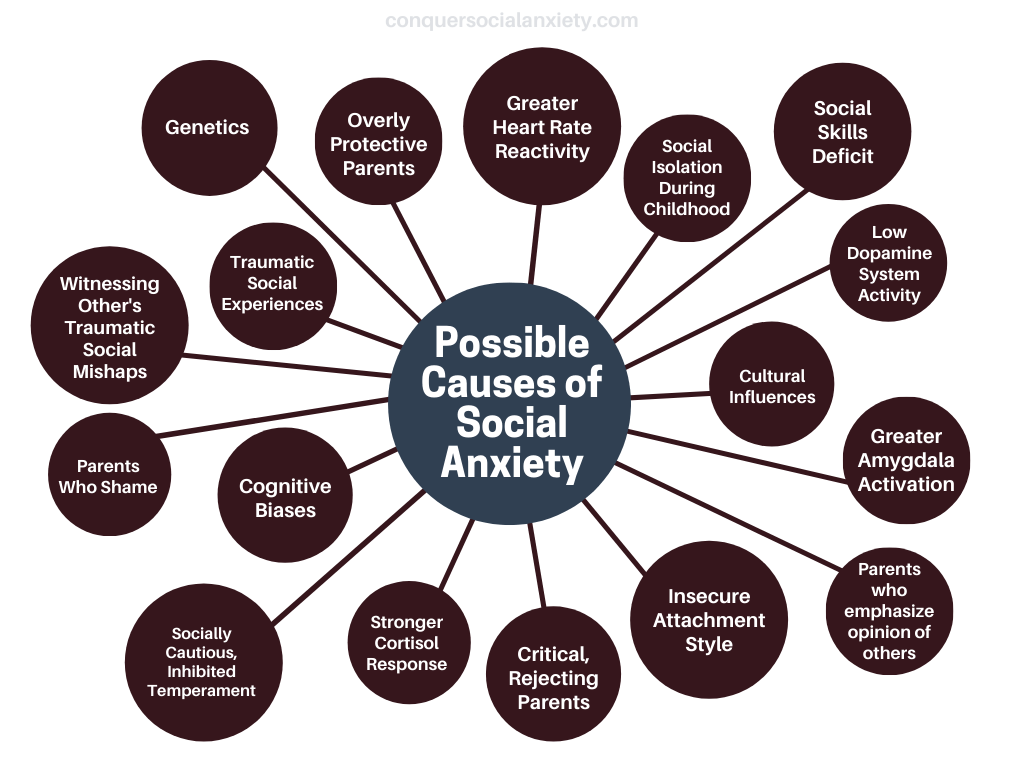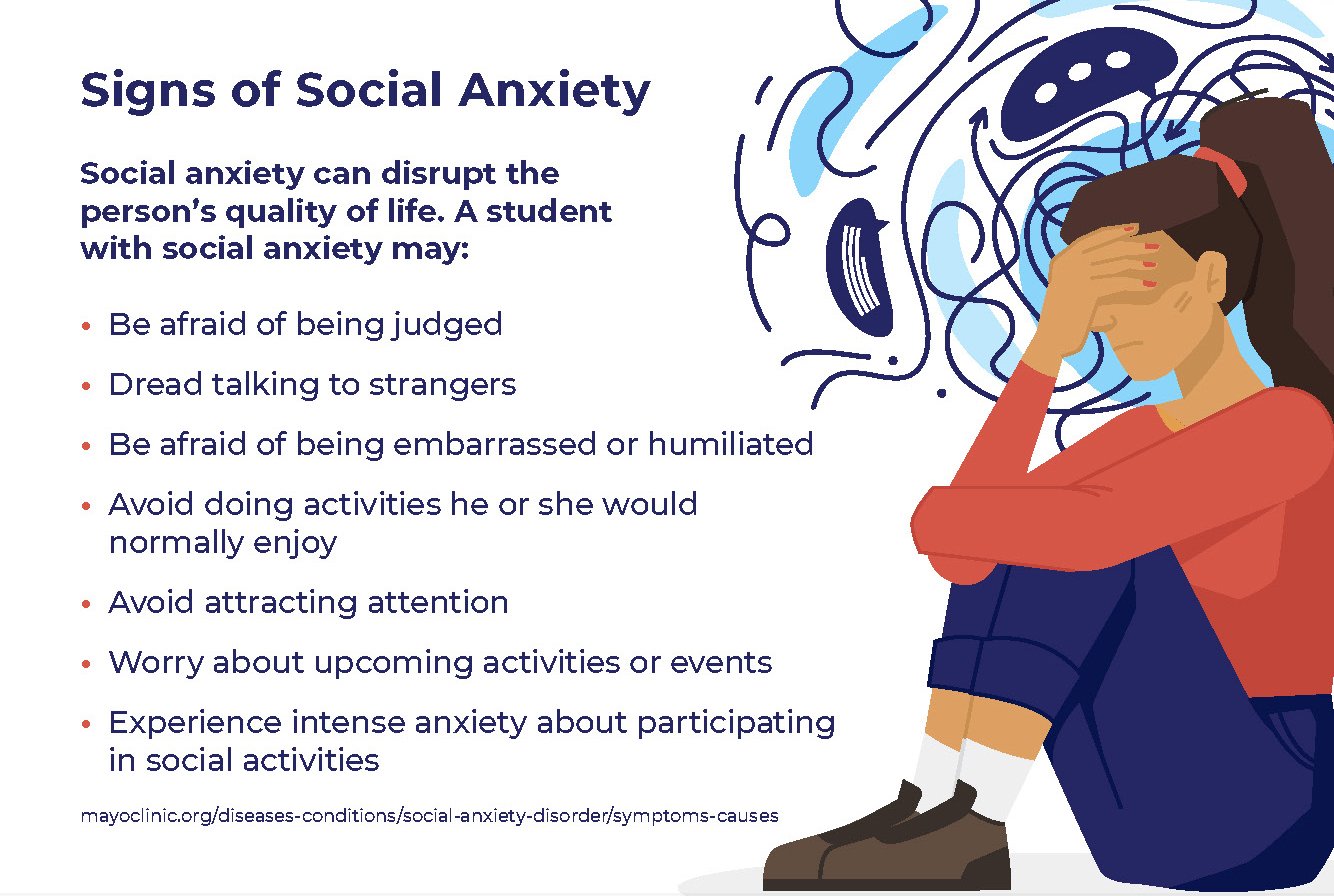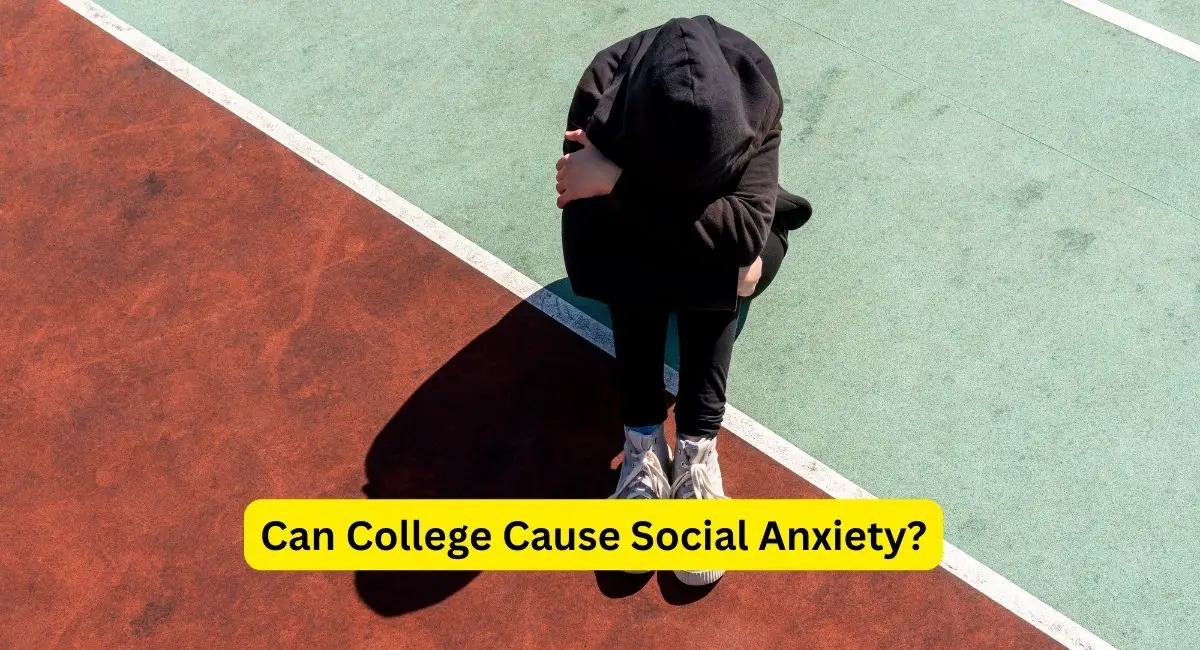College can indeed lead to the development of social anxiety. The pressures and social dynamics of college life may trigger or exacerbate such conditions.
Navigating the social labyrinth of college is daunting for many students. With the transition from familiar environments to diverse, crowded campuses, the expectation to socialize and form new relationships can be overwhelming. Academic demands, combined with the pursuit of personal identity and future goals, create a hotbed for stress.
This stress, in turn, can stir up social anxiety, as individuals grapple with performance expectations both in and out of the classroom. For some students, the fear of social scrutiny and judgment becomes a persistent concern, leading to avoidance of social interactions, which can significantly impact their college experience. It’s crucial to address these challenges early on, ensuring that students have access to support systems and resources to help them thrive in their new social milieu.

Credit: www.conquersocialanxiety.com
Tracing The Roots Of Social Anxiety In College
The transition to college can be daunting, especially for freshmen. New faces and complex social ladders can trigger social anxiety. Juggling classes, friends, and self-care is hard. These pressures intensify existing anxieties or spark new ones. College’s competitive nature often increases stress, adding to social fears. Students feel they must continuously perform at their best.
Meeting high academic standards is one thing. But blending into new social circles is another. Students worry about making friends and fitting in. This worry can grow into social anxiety. Simple tasks, like speaking in class, become giant obstacles. College brings challenges, both academically and socially. Settling into this environment takes time. Understanding its role in social anxiety is crucial.

Credit: www.pittsburghparent.com
Social Structures On Campus
Greek life on campus often sets a stage for social exclusivity. Joining such groups can hinge on popularity or specific interests. Those not included might feel left out or socially anxious. The pressure to fit in can be intense, leading to stress.
Dorm living presents another challenge. Being paired with roommates is random. It can create a bond or lead to discomfort. For some, having an incompatible roommate means feeling isolated. This environment could worsen existing social anxieties or trigger new ones. Students may struggle with finding a comfortable social space.
The Impact Of Digital Interaction
Social media often showcases a perfected image of life. This isn’t always real. Many people
compare themselves to these images and feel bad. They think everyone else has a perfect life.
Online chats can be less scary than talking to someone in person. You can’t see their face or know their feelings online. Kids might chose chatting online over meeting friends because they are scared.
But, face-to-face talks help us learn how to act with others. Without them, it’s hard to make real friends. This can make college feel lonely and tough.
Coping Mechanisms And Unhealthy Behaviors
Many students use alcohol and drugs for fitting in. Parties often involve substances to overcome shyness. Unfortunately, this can lead to dependence and addiction. Meanwhile, others may isolate themselves to avoid social stress. Skipping events and staying alone in dorms becomes common. This avoidance can grow into chronic loneliness and depression. Identifying healthy coping strategies is thus essential for well-being.
Resources And Support Systems
Many colleges offer counseling services to help students. These services provide confidential, professional guidance. They address personal, academic, and social concerns. Students feeling overwhelmed should seek help from campus counselors. This step is important for managing stress and preventing social anxiety.
Peer support and social groups also play a crucial role. Joining clubs and organizations fosters friendships. It also builds a support network. Engaging in social activities can boost confidence. It eases the pressure of academic life. Connections with peers often lead to shared experiences and comfort.

Credit: m.facebook.com
Frequently Asked Questions Of Can College Cause Social Anxiety
Can College Trigger Social Anxiety?
Yes, college can trigger social anxiety due to new environments, social pressures, and increased academic demands. Seeking support can help manage this condition.
What Is The Root Cause Of Social Anxiety?
The root cause of social anxiety often stems from genetics, brain structure, and life experiences, particularly traumatic events.
What Makes Social Anxiety Worse?
Social anxiety can worsen with negative thinking, lack of social skills, past embarrassing experiences, and avoidance behaviors. Stress and substance use also escalate symptoms.
What Does Severe Social Anxiety Feel Like?
Severe social anxiety often manifests as an intense fear of social situations. It can lead to avoidance of gatherings, extreme self-consciousness, and physical symptoms like shaking or a racing heart. This fear significantly impacts daily life and personal relationships.
Conclusion
Understanding the link between college and social anxiety is crucial for student wellness. Support systems can mitigate these feelings. Through awareness and resources, college can be more than a stressor—it can become a nurturing ground for personal growth and social confidence.
Let’s foster environments that bolster rather than break our communal spirit.

